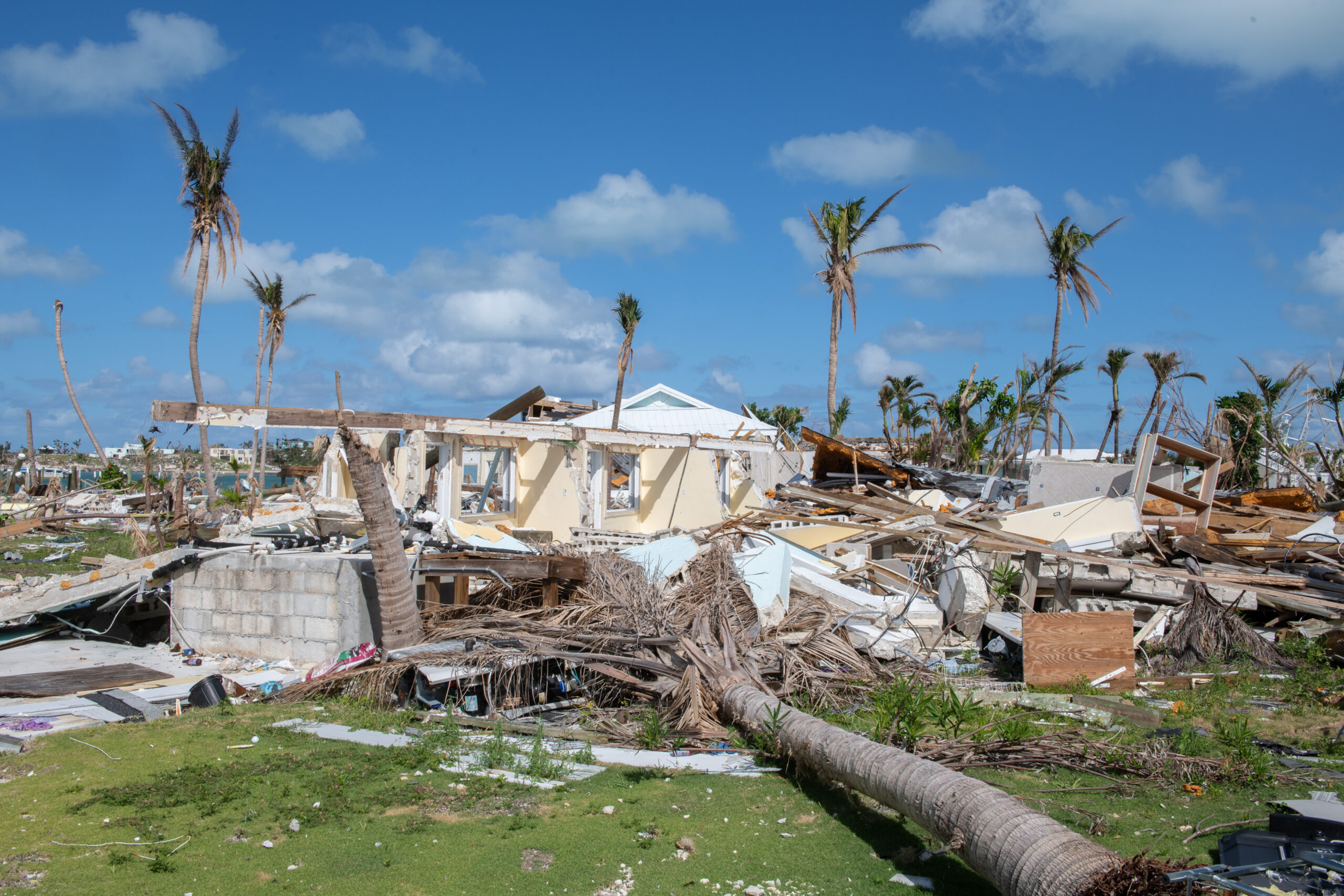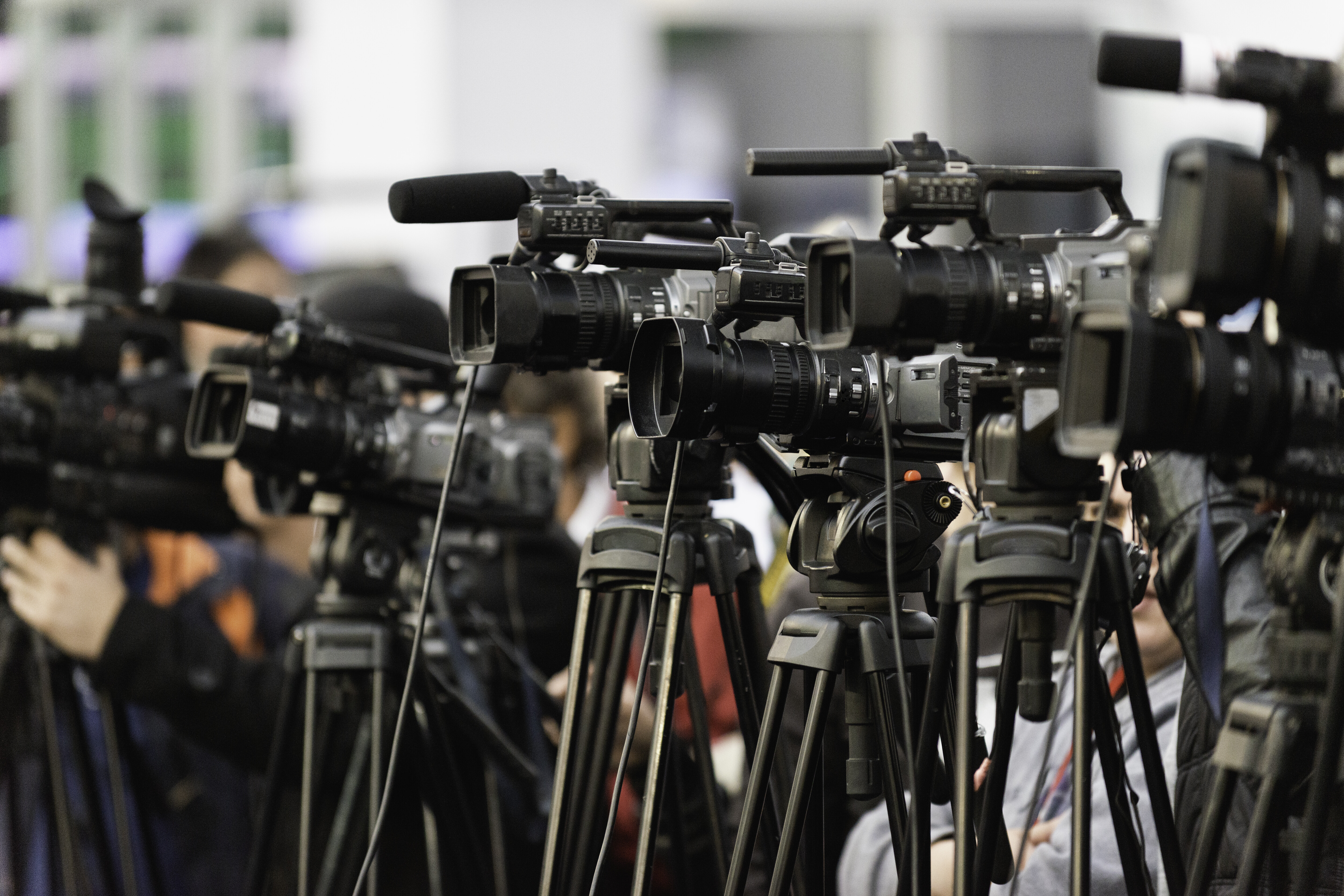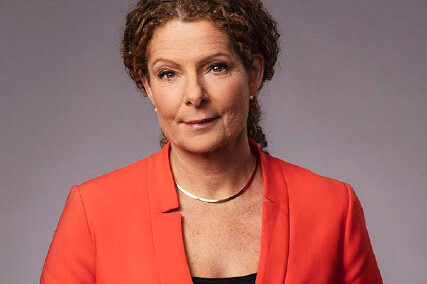WORLD PRESS FREEDOM DAY 2024 | STATEMENT
Public media and press freedom
3 May 2024
Elections, climate crisis and conflict – 2024 is a litmus test for press freedom and public service media.

By Kristian Porter, CEO of the Public Media Alliance
More people will vote in elections in 2024 than in any year previously.
If a generic public service media (PSM) handbook existed, then election coverage would be a case study as to why public media exists. It would say that in a plural, democratic and free media environment, there should be access to well-resourced and independent public media content to provide citizens with the information they need to make informed decisions.
It is because of this role and their underlying values of accessibility, universalism, and impartiality, that independent public media largely remain among the most trusted sources of news and information. It is why audiences still turn to their services in droves during elections, or at times of crisis, or for accurate reporting on arguably the most significant global threat of them all – the climate crisis.
This year’s World Press Freedom Day centres on the theme of A Press for the Planet: Journalism in the face of the environmental crisis. It does so because the growing limitations on journalists and news media to report effectively without fear or favour has dire implications for their ability to reveal environmental abuses, hold power to account, inform public debate, and expose the true cost of environmental degradation.
Threats to journalists are on the rise. Reporters Without Borders (RSF) recorded nearly 200 cases in the past decade alone, where journalists reporting on environmental issues have been exposed to physical violence and threats, often linked to reporting on stories related to corruption or organised crime. In the same period, 13 of the 28 journalists killed in India were working on environmental stories, according to RSF.
Intimidation and harassment, such as SLAPPs and arbitrary detentions, are becoming more widespread while limited access and poor FOI procedures in many jurisdictions further limit the ability of journalists to report effectively.
Indeed, the general operating environment for all journalists is becoming more harrowing. According to the International Federation of Journalists (IFJ), 120 journalists and media workers were killed in 2023, while the Committee to Protect Journalists (CPJ) has already recorded 21 journalists killed this year – and that’s only those where a motive has been confirmed. And women journalists remain disproportionately targeted, with 92 press freedom violations against women reported in January alone, according to The Coalition For Women in Journalism.
The impact of these threats goes far beyond the immediate. They inspire self-censorship, deeply diminish the mental health and wellbeing of media workers and degrade both staff recruitment and retention.
To work effectively and viably, public media not only require public support; they require strong legislative and regulatory protections, and an understanding from those in power as to the democratic necessity of well-funded, editorially independent media with a role to hold power to account on behalf of the public.
While the conflicts in Gaza and Ukraine are of course hotspots for press freedom violations, they are far from localised to warzones. Just this week, a report by the Civil Liberties Union for Europe (Liberties) gave a damning account of media freedom across the continent, citing heavily concentrated media ownership, a lack of transparency, and threats to the independence of public service media as among the top threats.
Nor are these issues constrained by borders. Also this week, the BBC revealed that a staggering 310 of its journalists are reporting from exile as a result of crackdowns in Russia, Ethiopia, and Afghanistan among others. Even journalists who have escaped persecution at home, are targeted and harassed transnationally, while their families who remain also experience threats and persecution. Last month, the BBC filed an urgent appeal to the UN over the abuse of national security and counter-terrorism laws against BBC News Persian journalists by Iranian authorities.
But while larger organisations certainly have a greater ability to protect staff, those working for smaller newsrooms, or freelance journalists, especially those who lack sufficient organisational protection – legal, financial, security or otherwise – are feeling the brunt of these challenges.
The cost of safety is growing, and as news deserts grow, the capacity for newsrooms to cover locally relevant stories – such as environmental abuses – effectively and safely is at a tipping point.
The entire news media sector is being beset by cuts, brought about largely by dwindling advertising profits, and public media are not exempt. Many are being forced to restructure, slim down, and in some cases, that means losing some services.
The case for independent public service media is clear
With such pressures on news providers, it means that protecting and ensuring the presence of viable, independent public service media is more important than ever.
While PSM should of course be part of a plural democratic media environment, they are critical in filling gaps in coverage on important issues, especially locally relevant stories and those that are otherwise underreported by others.
Their presence is in itself an indicator of press freedom. But to work effectively and viably, they not only require public support; they require strong legislative and regulatory protections, and an understanding from those in power as to the democratic necessity of well-funded, editorially independent media with a role to hold power to account on behalf of the public. They require assurances on safety, and an operating environment that understands and respects their role.
But it appears this understanding is in decline. Around the world public media face mounting challenges to their ability to fulfil their mandates. Some governments are capitalising on populist rhetoric to challenge public funding mechanisms, while others are exploiting loopholes to interfere in independence and capture organisations entirely.

As a global association of public service media organisations, we have been tracking many of the challenges and press freedom abuses our members and partners experience, some of which can be found below. There is a downward trend, but there are also many bold and innovative steps being taken to best secure public service media and public interest media for the future.
These measures require our support, and we continue to call on all stakeholders to rally and collaborate in support of a safe and viable future for public service media and press freedom more widely. In this year of elections and crises, and as we approach a global environmental tipping point, the importance of securing and protecting not just public media, but free and independent journalism as a fundamental element of democracy, is imperative.
Subscribe toour newsletter
Keep updated with the latest public
media news from around the world
Around the world
Around the world, our members, partners, and colleagues are under pressure to report against increasing odds. They do so because their coverage is in the public interest and crucial to maintaining healthy, informed democracies.
Here we explore just some of these challenges.
Argentina
After months of political pressure and threats, press freedom and public media has been dealt a blow by the new president Javier Milei. Keeping to his campaign promises to abolish all public institutions, Milei has closed the doors of the public service media, Télam, despite the protests of journalists, press unions and other workers who camped outside its Buenos Aires headquarters. They have called on the government to let them resume their journalistic work and safeguard the values of public media. Despite not being as dominant as the main private media groups, the national media – Télam and Radio Nacional, for example – are the only media companies with widespread coverage across the entire country, while the main commercial media organisations remain concentrated around the capital.
Read more: Fears for future of public media in Argentina after Télam shuttered
Bosnia & Herzegovina
The passing of restrictive laws by the Bosnian government has raised concerns about a decline in media freedom. The public broadcaster has also faced a political and funding squeeze for nearly a decade, which drove it to announce in January that it was on the brink of collapse. The long-standing financial issues have impeded its mission and contributed to a significant erosion of working conditions for employees. This funding situation has been resolved in the short-term with an emergency package of €2 million supplied by the government in February.
Read more: Media freedom in decline in Bosnia & Herzegovina?
Brazil
Last year, the new government shelved plans to privatise the public broadcaster, EBC (Empresa Brasil de Comunicação). Since then,

there have been positive steps, including an emphasis on clearly separating the broadcaster’s government information and public interest journalism roles. The EBC has undergone a massive expansion since the 2023 election, including the introduction of new content, the expansion of its broadcast to more than 50 municipalities, and the relaunch of several radio and television channels. In late April, it was announced that EBC will now have an Editorial and Programming Committee. But concerns remain. A recent report notes the financial sustainability of EBC is fragile, and public trust needs to be rebuilt after years of undermining, interference and censorship. Despite the new government, concerns around political pressure continue to persist.
Read more: Brazil: Journalists attacked as government buildings stormed
Burkina Faso
Freedom of the press in Burkina Faso is under serious threat, driven by recent attacks on international media. Several outlets had already been suspended with the military blocking the French outlets Le Monde, Jeune Afrique, and the French public broadcaster France 24 in 2023. More recently, the government suspended the radio networks of the BBC World Service and Voice of America for two weeks, after they covered a Human Rights Watch report into mass killings allegedly committed by the Burkinabé army.
Georgia
The Georgian government is in the process of implementing a new “Foreign agent” law, which will limit media freedoms and see journalists designated as foreign agents. In April, the ‘Transparency of foreign influence’ bill was officially registered, with many parallels to a similar law in Russia that is used to regulate and restrict media activities. Beyond affecting the freedoms of certain media outlets and NGOs, foreign agent laws also have a chilling effect on people’s right to seek and receive information. But the Georgian government has faced a wave of public protest calling for the bill to be scrapped. If passed, it could also undermine Georgia’s bid to join the European Union.
Greece
Media freedom groups have highlighted the erosion of free media in Greece for over a decade, and this trend appears to have continued this year, with both public and private media threatened by media capture. The European Centre for Media and Press Freedom said Greek journalism is under the “sustained threat” of surveillance, abusive legal action, and economic and political pressures, which threaten independent journalism and press freedom. The Council of Europe similarly expressed concerns over press freedom in March. A report by IPI, published in January, said the Greek public broadcaster suffered from “a chronic lack of editorial and institutional independence”, with a lack of safeguards to insulate it from political power. It added that interference from government officials was commonplace. There have been significant reforms since 2019, which has brought more independence and stability, though there remain concerns about how enduring these may be.
India
More than 900 million people are currently voting in the world’s largest election, but as prime minister Narendra Modi seeks a third term in power, there are widespread fears of the erosion of democracy and media freedom under the past decade of his Hindu nationalist BJP party’s rule. International media has been increasingly targeted by the authorities, with journalists regularly encountering visa issues in the wake of critical stories, as well as having access restricted. Scrutiny of the BBC from the authorities – including a raid on its New Delhi and Mumbai offices last year – has resulted in the BBC restructuring all of its in-country operations, in the form of a new, wholly-Indian company, called Collective Newsroom. Local media has also seen a significant weakening, with outlets captured and journalists reporting regular harassment and intimidation.
Read more: ABC journalist’s troubles in India spotlight erosion of media freedoms
Iran
More than 90 journalists were prosecuted in Iran last year, with the Committee to Protect Journalists calling the country one of the worst jailers of journalists, with hundreds more Iranian journalists forced into exile. To coincide with World Press Freedom Day, the BBC World Service announced for the first time that 310 of its journalists are working in exile, including staff at BBC Persian who have been in exile for over a decade and continue to face harassment and prosecution. But exile is not necessarily safety. Last month, an Iranian journalist was stabbed outside his home in London, with the attack currently being investigated by counter-terrorism police. The BBC has been addressing all avenues possible – including lodging a complaint with the UN – to protect their journalists facing intense persecution, abuse, and threats from Iranian authorities. A recent BBC investigation, which alleged Iranian security forces sexually molested and then killed a 16-year-old girl, has led to the judiciary filing charges against the journalists.
Italy

World Press Freedom Day in Italy is marked by journalists at the public broadcaster, Rai, going on strike, with the Prime Minister Giorgia Meloni accused of trying to turn it into a government mouthpiece. Discontent has erupted over several accusations of interference in editorial content, as well as the adoption of a controversial law that allows Rai’s news channel to air political rallies without any journalistic mediation. The adoption of the new law has sparked a wave of criticism from the opposition, journalists and civil society organisations.
Read more: Italian public broadcaster accused of bias ahead of elections
Niger
In Niger, two French international public media channels, RFI and France 24 were suspended after the military takeover of the state. The state of press freedom has become worrying, with citizens deprived of widely used sources of information. According to France Médias Monde, their channels were popular across Niger, with nearly a fifth of the population tuning into one of RFI’s seven FM stations, shortwave stations, or three satellite stations. A quarter of the population used France 24. “Niger’s military junta has deliberately violated the right to pluralistic news coverage for the many Nigerien citizens,” said Sadibou Marong, Director of RSF’s sub-Saharan Africa bureau.
Read more: Nigeria Election: Threats, sanctions, and disinformation
Pakistan
Pakistan has continued to rank poorly in press freedom this past year, with the government introducing several draconian laws supposedly designed to combat “disinformation”, “cybercrimes” and “spying”, which could all be used to harass journalists and impose censorship. Also, during political turmoil surrounding the former prime minister Imran Khan, the media was told to censor coverage of him, and access to the internet and social media was either slowed or blocked during times of protest.
Read more: Pakistan radio station set alight

Slovakia
The Slovak government’s controversial decision to dissolve the public broadcaster, RTVS, has stoked fears of media capture in the country. Despite the government’s broadcasting amendments being watered down after significant public backlash, the changes still bring independent media worryingly close to political control. Even before this change, media freedom in Slovakia was eroding fast, with the European Commission urging Slovakia to instead strengthen governance and editorial independence.
Read more: Slovak government pushes ahead with move to replace RTVS, dealing fresh blow to media freedom
South Africa
While South Africa has a vibrant and diverse media landscape, the unstable situation of the South African Broadcasting Corporation (SABC) remains a concern. The public broadcaster has confronted severe financial issues and nearly went into liquidation in 2023. Given the struggles, an overhaul of the laws governing the SABC has been proposed. However, the proposed amendments have been criticised as a “missed opportunity” to modernise the troubled broadcaster, without providing a permanent solution to its financial problems. The new SABC bill proposal has been shelved until after the May elections.
Read more: Bill delayed as SABC threatened with strike
Related Posts
26th October 2023
Why newsrooms should have mental health strategies for climate journalists
It’s time to recognise that climate…
10th October 2023
DG8: Media freedom never more important — nor more at risk
Eight international public service…
15th September 2023
Media Freedom Coalition Statement on Transnational Repression of Journalists and Media Workers
The Media Freedom Coalition is…
3rd May 2023
Cilla Benkö: We must all be the guardians of freedom of the press
Having free access to information is…



